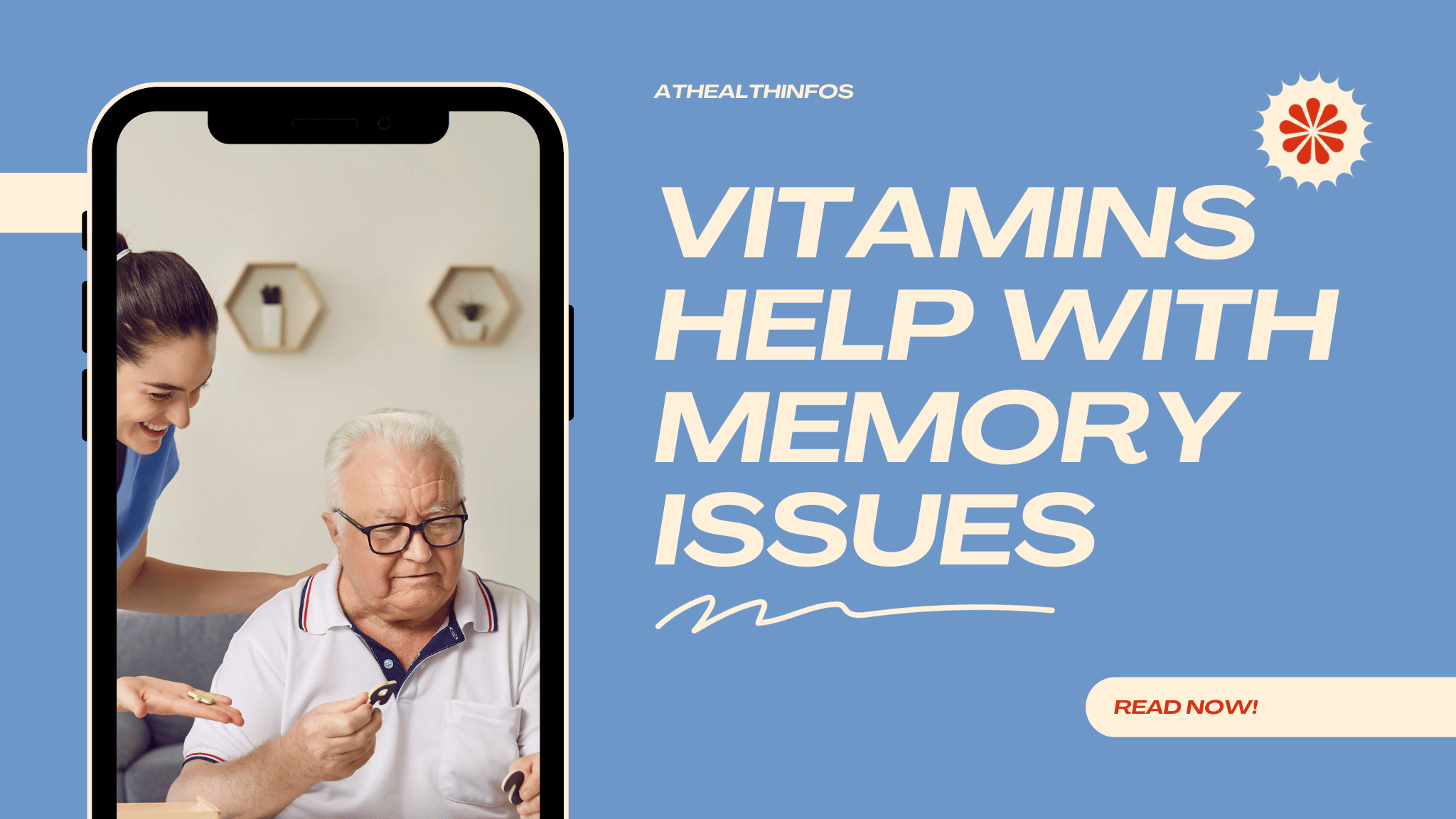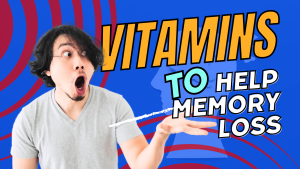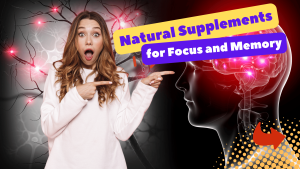Do you struggle to remember names, dates, or facts? Do you feel like your memory is getting worse as you age? If you answered yes to any of these questions, then you need to read this article right now!
In this article, you will discover what vitamin is good for memory loss and how it can help you improve your brain function and prevent cognitive decline. This vitamin is not only natural and safe, but also easy to get and affordable.
What Vitamins Help with Memory Issues?
Memory loss is a common concern for many people, especially as they age. It can affect your ability to recall information, perform daily tasks, and maintain your quality of life. While some degree of memory decline is normal and inevitable, there are also factors that can accelerate or worsen it, such as stress, lack of sleep, medication side effects, and certain diseases.
Fortunately, there are also ways to prevent or slow down memory loss, and one of them is to ensure that you get enough of the vitamins that support your brain health and function. In this article, we will explore what vitamins help with memory issues, how they work, and what foods or supplements you can take to get them. We will also compare some of the best natural supplements for memory loss that contain these vitamins and other brain-boosting ingredients.
Key Takeaway
| Vitamin | How it helps memory | Food sources | Recommended intake |
|---|---|---|---|
| B12 | Prevents brain shrinkage and cognitive impairment | Animal products, fortified cereals, nutritional yeast | 2.4 mcg/day for adults |
| E | Protects brain cells from oxidative damage and inflammation | Nuts, seeds, vegetable oils, leafy greens | 15 mg/day for adults |
| C | Supports neurotransmitter synthesis and blood flow to the brain | Citrus fruits, berries, peppers, broccoli, kiwi | 90 mg/day for men, 75 mg/day for women |
| D | Regulates mood, learning, and memory | Sun exposure, fatty fish, egg yolks, fortified dairy | 15-20 mcg/day for adults |
What Vitamins Help with Memory Issues?
Vitamin B12
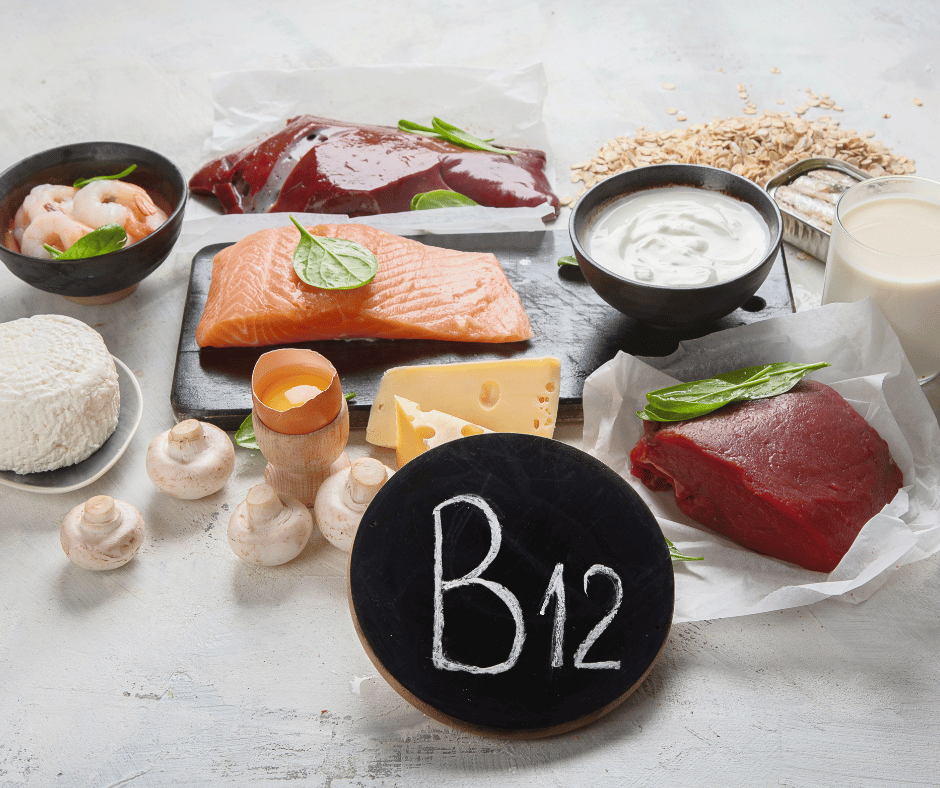
Vitamin B12 is essential for the production of red blood cells, DNA, and nerve function. It also plays a role in maintaining the health and size of your brain. A deficiency of vitamin B12 can lead to brain shrinkage, which can impair your memory and cognitive abilities. Studies have shown that low levels of vitamin B12 are associated with an increased risk of Alzheimer’s disease and dementia, especially in older adults.
Vitamin B12 is mainly found in animal products, such as meat, eggs, dairy, and fish. If you are vegan, vegetarian, or have trouble absorbing vitamin B12 from food, you may need to take a supplement or eat fortified foods, such as cereals, plant milks, or nutritional yeast. The recommended intake of vitamin B12 for adults is 2.4 micrograms (mcg) per day, but some people may need more depending on their age, health condition, and medication use.
Vitamin E
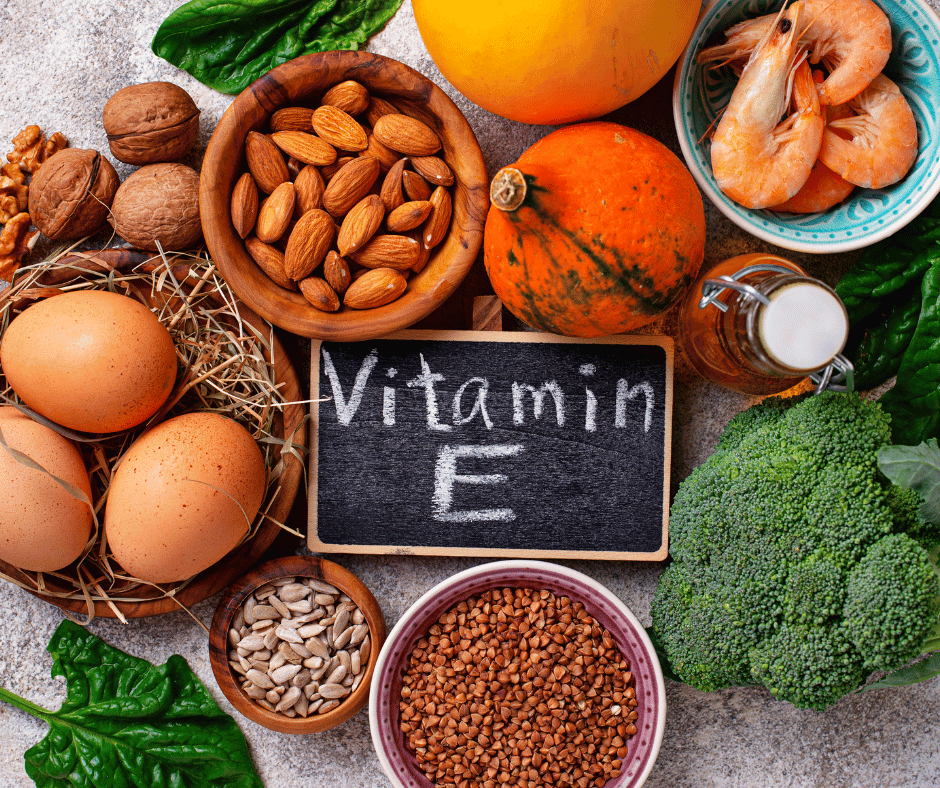
Vitamin E is a powerful antioxidant that protects your cells from oxidative stress and inflammation, which can damage your brain and contribute to memory loss. Vitamin E also supports the communication between your brain cells and enhances the blood flow to your brain, which can improve your cognitive performance and prevent cognitive decline. Research has shown that high doses of vitamin E can help people with mild to moderate Alzheimer’s disease by slowing down the progression of the disease and improving their daily functioning.
Vitamin E is found in foods such as nuts, seeds, vegetable oils, and leafy green vegetables. The recommended intake of vitamin E for adults is 15 milligrams (mg) per day, but some people may benefit from higher doses under medical supervision. However, taking too much vitamin E can also have negative effects, such as increasing the risk of bleeding and interfering with some medications, so consult your doctor before taking vitamin E supplements.
Vitamin C
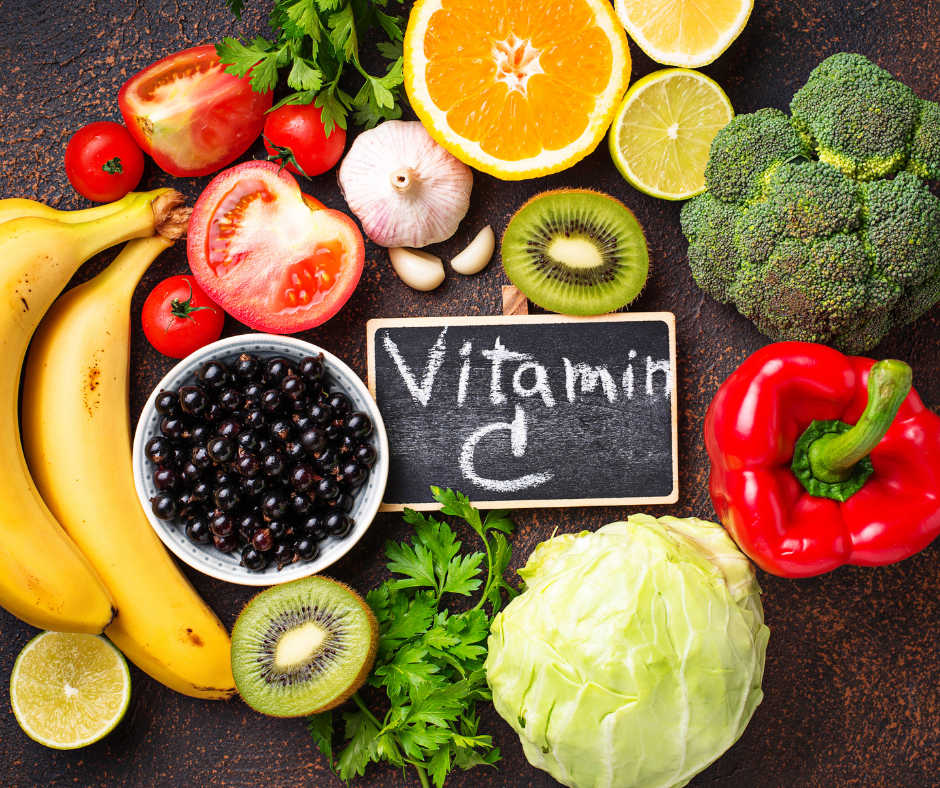
Vitamin C is another antioxidant that protects your brain from oxidative stress and inflammation. It also helps your body produce neurotransmitters, such as dopamine, serotonin, and norepinephrine, which are important for your mood, memory, and learning. Vitamin C also improves the blood flow to your brain, which can enhance your mental clarity and alertness. Studies have shown that vitamin C can improve cognitive function and prevent cognitive decline in older adults, especially when combined with other antioxidants, such as vitamin E.
Vitamin C is abundant in fruits and vegetables, especially citrus fruits, berries, peppers, broccoli, and kiwi. The recommended intake of vitamin C for adults is 90 mg per day for men and 75 mg per day for women, but some people may need more depending on their age, health condition, and lifestyle. Vitamin C is water-soluble, which means that your body does not store it and you need to get it regularly from your diet or supplements.
Vitamin D

Vitamin D is a hormone that regulates many functions in your body, including your mood, immune system, bone health, and brain health. Vitamin D receptors are found throughout your brain, and vitamin D influences the expression of genes that are involved in learning and memory. A deficiency of vitamin D can lead to low mood, impaired cognitive function, and increased risk of Alzheimer’s disease and dementia. Studies have shown that vitamin D supplementation can improve mood, memory, and cognitive performance in older adults with low vitamin D levels.
Vitamin D is mainly produced by your skin when exposed to sunlight, but you can also get it from some foods, such as fatty fish, egg yolks, and fortified dairy products. The recommended intake of vitamin D for adults is 15-20 mcg per day, but some people may need more depending on their age, skin color, sun exposure, and health condition. Vitamin D is fat-soluble, which means that your body can store it and you need to be careful not to take too much, as it can cause toxicity and side effects.
What are the best natural supplements for memory loss?
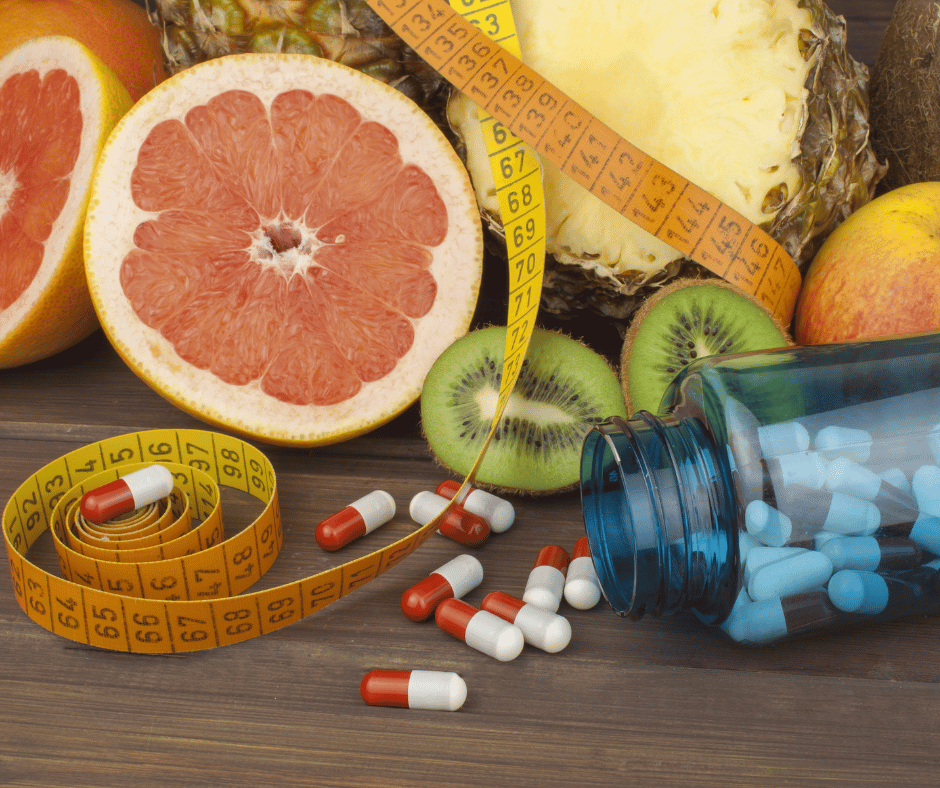
In addition to vitamins, there are also other natural ingredients that can help improve your memory and cognitive function. These include herbs, amino acids, antioxidants, and other compounds that have various effects on your brain, such as enhancing blood flow, reducing inflammation, stimulating nerve growth, and modulating neurotransmitters. Some of the most popular and effective natural supplements for memory loss are:
Table
| Supplement | What it is | Ingredients | Benefits | Price | Full review |
|---|---|---|---|---|---|
| Pure Neuro | A 35-in-1 memory essential formula | Citicoline, Acetyl-L-carnitine, Alpha-lipoic acid, Phosphatidylserine, Huperzine A, and more | Supports healthy memory, concentration, and mental acuity | $49/bottle | Read more |
| Fast Brain Booster | A natural nootropic blend | Bacopa monnieri, Ginkgo biloba, L-theanine, L-tyrosine, and more | Enhances focus, memory, and mood | $39/bottle | Read more |
| Alpha BRAIN | A clinically tested cognitive enhancer | Oat straw extract, Cat’s claw extract, Alpha-GPC, Bacopa monnieri, and more | Improves memory, mental speed, and focus | $34.95/bottle | Read more |
| NeuroZoom | A brain health elixir | Lion’s mane mushroom, Bacopa monnieri, Rhodiola rosea, Ashwagandha, and more | Boosts brain energy, chemicals, blood flow, waves, and protection | $59/bottle | Read more |
| ProMind Complex | A natural memory support supplement | Huperzine A, Vinpocetine, Ginkgo biloba, Phosphatidylserine, and more | Prevents brain cell damage and delays age-related memory loss | $69/bottle | Read more |
These supplements are all made from natural and safe ingredients that have been scientifically proven to support brain health and function. However, before taking any of these supplements, you should consult your doctor to make sure they are suitable for you and do not interact with any medications you are taking. You should also follow the dosage instructions and do not exceed the recommended amount.
Conclusion on “What Vitamins Help with Memory Issues?”
Memory loss can affect anyone at any age, but it can be prevented or slowed down by taking care of your brain health and function. One of the ways to do that is to get enough of the vitamins that are good for memory loss, such as B12, E, C, and D. You can get these vitamins from your diet or from supplements, depending on your needs and preferences. You can also try some of the best natural supplements for memory loss that contain these vitamins and other brain-boosting ingredients, such as herbs, amino acids, antioxidants, and other compounds. These supplements can help improve your memory, concentration, mood, and overall cognitive performance.
However, remember that supplements are not a substitute for a healthy lifestyle and a balanced diet. You should also exercise regularly, get enough sleep, manage your stress, and challenge your brain with new and stimulating activities. These habits can help you maintain your brain health and function and prevent or delay memory loss.
You might also be interested in…

